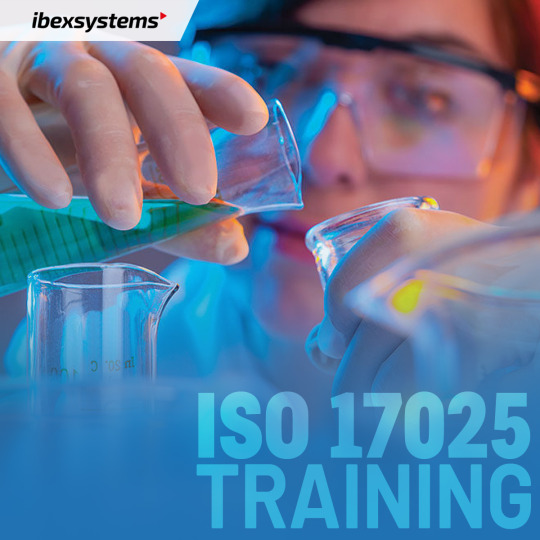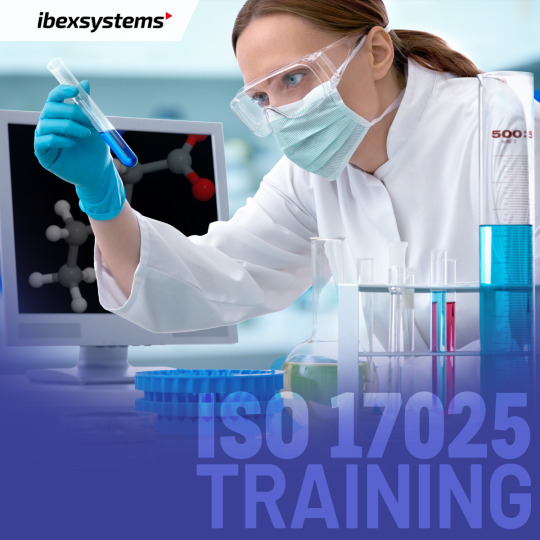#LabAccreditation
Explore tagged Tumblr posts
Text
How to Implement Risk-Based Thinking as per NABL Standards
In today’s bustling, rule-saturated labs, sticking to NABL requirements for testing laboratories isn’t just a good idea anymore—it has become the price of staying open. The chief demand, borrowed from the 2017 update of ISO/IEC 17025, is something called Risk-Based Thinking, or RBT. When you lean into RBT, you guard quality, keep trust alive, and build tougher testing routines.
So whether you are gunning for your first NABL stamp or dusting off an old quality plan, pushing RBT to the front of your list is a must. For down-to-earth actions and seasoned guidance, check out our complete NADL ISO 17025 consulting roadmap.
What Is Risk-Based Thinking in NABL Standards?
In plain language, Risk-Based Thinking means keeping your eyes open, judging, and steering any bumps or surprising chances that could shake results or your labs good name.
ISO/IEC 17025:2017-the backbone of NABL audits-requires that labs:
Identify risks and opportunities related to lab activities,
Take actions to address them,
Integrate these into the management system,
Evaluate how well those steps actually work.
Why Is Risk-Based Mindset Crucial for NABL Accreditation?
NABL expects labs to do more than check boxes; it wants an ongoing push to get better. Risk-based thinking drives that goal by:
Helping managers make smarter choices and spend resources where they matter most.
Cutting the chances of mistakes and non-conformances.
Fostering a forward-looking quality culture that spot problems early.
Building customer confidence with results that are steady and trustworthy.

Practical Steps for Bringing Risk-Based Thinking into a Testing Lab
1. Understand the Context of Your Laboratory
Begin by identifying internal and external issues that can impact your lab's performance. This could include:
Changes in regulatory requirements
Supply chain uncertainties
Staff skill gaps
Equipment reliability
By knowing the context, you lay the foundation for a focused risk assessment.
2. Define Objectives and Critical Activities
Risk-based thinking must be aligned with your lab’s objectives. Determine which processes or results are critical for:
Accurate testing outcomes
Timely delivery
Compliance with NABL standards
These become your key areas of focus.
3. Identify Risks and Opportunities
Use tools like:
SWOT Analysis
FMEA (Failure Mode and Effects Analysis)
Brainstorming sessions
Historical data review
Document each risk with its possible impact and likelihood. For instance, “Risk of equipment failure leading to test delays” can be a typical operational risk.
4. Assess and Prioritize
Not all risks are equal. Prioritize them using a risk matrix—low, medium, or high based on their severity and probability. This helps you allocate resources effectively.
5. Plan Mitigation Actions
For each high-priority risk, define mitigation or control measures. For example:
Preventive maintenance for equipment
Training programs for staff
Vendor evaluations for supply consistency
Ensure these actions are documented and aligned with your quality system.
6. Integrate Risk Management with QMS
Risk-based thinking shouldn’t be a standalone process. Integrate it into:
Internal audits
Management reviews
Process improvement initiatives
This ensures ongoing evaluation and responsiveness to evolving risks.
7. Monitor, Review & Improve
Once risk controls are in place, monitor their effectiveness regularly. This could be through:
KPI tracking
Audit findings
Feedback from stakeholders
Use this data to refine your approach and foster a culture of continuous improvement.
Practical Example of Risk-Based Thinking
Scenario: A testing laboratory frequently faces delays in report submission due to equipment downtime.
Risk Identified: Unscheduled equipment failure.
Mitigation Plan: Implement a monthly preventive maintenance schedule and maintain calibration logs.
Result: Improved equipment uptime and timely report submission—demonstrating conformity with NABL’s focus on reliability and customer satisfaction.
Key Takeaways
Risk-based thinking sits at the heart of NABLs ISO/IEC 17025:2017 framework for testing labs.
By focusing on spotting risks early, it encourages stopping issues before they start, instead of fixing them later.
When RBT is woven into daily work, a labs credibility, efficiency, and overall performance can rise sharply.
Conclusion
Any lab that wants to win or keep NABL accreditation must build a clear risk-based plan; doing so meets rules and steers the lab toward lasting trust and success.
For teams seeking hands-on help to line up with NABL and ISO/IEC 17025, 4C Consulting proven consulting services are worth a look.
#NABL#ISO17025#nablaudit#measurementuncertainty#TestingLaboratories#QualityManagement#LaboratoryCompliance#RiskManagement#Accreditation#ISOStandards#LabAccreditation#QMS#ProcessExcellence
0 notes
Text
🧪Discover the Importance of NABL Certified Labs in Chennai.
When it comes to product safety, precision, and regulatory compliance, working with NABL certified labs in Chennai is more than a recommendation—it’s a necessity.
What Does NABL Certification Mean?
The National Accreditation Board for Testing and Calibration Laboratories (NABL) ensures that labs meet strict international standards for testing and calibration. Accreditation under ISO/IEC 17025 means the lab is:
Technically competent
Regularly audited for quality
Recognized nationally and internationally
Why It Matters for Industries
From pharmaceuticals to cosmetics and food safety, every detail counts. NABL-certified labs in Chennai are trusted by:
Manufacturers for product validation
Exporters for international compliance
Startups and R&D units for reliable development testing
Environmental agencies for water, air, and soil analysis
Services Commonly Available:
Chemical composition analysis
Microbial testing
Heavy metal detection
Soil and water quality assessment
Product stability and shelf-life studies
If accuracy, accountability, and certification are critical for your work, a NABL certified lab in Chennai is your safest and most professional choice.
1 note
·
View note
Text

Confirm Regulatory Compliance & Positive Health with Nutritional Testing Services from FSSAI India - Notified EFRAC Lab.
A Label of Trust Way Ahead of Others!
#FSSAI#foodtasting#FoodSafety#foodquality#safefood#foodlabels#foodstandardsagency#nutritiontesting#foodcertification#fssailab#FoodRegulations#LabAccreditation#FoodSafetyStandards#FoodCompliance#efrac#efraclab
0 notes
Photo

ISO 17025 Training on New Standard and Certification for Systems Implementation in UAE. Contact Ibex Systems for ISO 17025:2017 Training. For more info - https://www.ibexsystems.net/isoiec-17025-laboratory-accreditation/
#iso17025training#iso17025awarenesstraining#isotraining#labaccreditationtraining#labaccreditation#trainingforisoaccreditation#laboratoryaccreditation#onlineiso17025training#iso17025:2017#onlineiso17025#iso17025:2017training#onlinetrainingforiso17025#iso17025#iso17025certification#iso17025consulting#consulting services
0 notes
Text
BEAUTY WITH A DIFFERENCE
EFRAC’s Key Role Plays in Furthering Eco-Conscious Practices in Cosmetics Manufacturing.
Life-Friendly Testing Methods: EFRAC does not Resort to Testing Cosmetics on Animals.
Natural Ingredient Testing: Natural and Organic Origin Ingredients undergo Rigorous Tests to establish or deny Veracity of Claims of Eco-friendliness & Sustainability.
Safety and Efficacy Testing: Rigorous Safety and Efficacy Tests for Toxicity and Allergens ensure that the Consumer gets the Benefits Promised without being harmed.
Biodegradability Testing: Verification of Product & Package Biodegradability Reveals the Extent of its Eco-friendly Credentials and helps improve Quality.
Microbiological Testing: Ensures that Products are free from Harmful Bacteria and Pathogens boosting Skin Health and Environmental Safety.
Lifecycle Assessment: Helps understand the Environmental Impact of Products over their Lifecycle and Reduce Environmental Footprint.
Certification and Compliance: Helps Manufacturers conform to Regulatory Standards applicable to Natural Products.
Collaboration and Research: Collaboration and R&D lead to the Discovery of New & Improved Testing Methods upping the Product’s Sustainability and Safety Profiles.
#ISO17025#accreditedlab#CosmeticTesting#QualityAssurance#producttesting#CosmeticSafety#laboratoryservices#testingservices#qualitycontrol#cosmeticsscience#accreditedtesting#LabAccreditation#TestingStandards#qualitytesting#isostandards#efrac#efraclab
0 notes
Photo

ISO 17025 Training on New Standard and Certification for Systems Implementation in Middle East. Contact for ISO 17025:2017 Training. For more info - https://www.ibexsystems.net/isoiec-17025-laboratory-accreditation/
#ISO17025Training#ISO17025AwarenessTraining#iso training#LabAccreditationTraining#LabAccreditation#TrainingforISOAccreditation#LaboratoryAccreditation#OnlineISO17025Training#iso17025:2017#onlineiso17025#iso17025:2017training#OnlineTrainingforISO17025#ISO#ISO17025#ISO17025Certification#ISO17025Consulting#ConsultingServices
0 notes
Photo

ISO 17025 Training on New Standard and Certification for Systems Implementation. Contact for ISO 17025 Training. For more info - https://www.ibexsystems.net/isoiec-17025-laboratory-accreditation/
#ISO17025Training#ISO17025AwarenessTraining#iso training#LabAccreditationTraining#LabAccreditation#TrainingforISOAccreditation#LaboratoryAccreditation#OnlineISO17025Training#ISO17025:2017#OnlineISO17025#ISO17025:2017Training#OnlineTrainingforISO17025#ISO17025#ISO#iso17025certification#iso17025consulting#consulting services#iso certification
0 notes